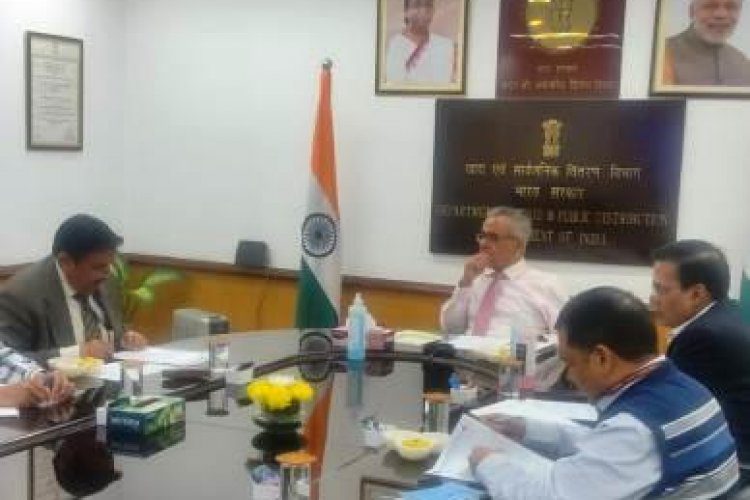A team of National Federation of Cooperative Sugar Factories (NFCSF) recently met Sanjeev Chopra, Secretary (F&PD), Aswani Srivastava, Joint Secretary (Sugar), Sangeet Singla, Chief Director (Sugar) and other officials from the sugar department. The focus of the discussion encompassed pressing issues affecting sugar mills and the broader sugar industry across the country.
During the meeting, NFCSF representatives meticulously outlined the challenges faced by the sugar industry, shedding light on how sudden restrictions on ethanol production are triggering financial crises.
The NFCSF officials discussed the prolonged season of sugarcane crushing in Maharashtra and its impact on the sugar recovery. As per the officials, approx. 18 lakh tonnes of surplus sugar remain at the end of the season that needed to be used in the ethanol production. They also pointed out that the surplus stock of B molasses remaining with the factories, could be used for juice/syrup. According to NFCSF officials, they also highlighted the fact that the new rates of ethanol produced from this, have not been announced yet.
One of the key concerns raised by NFCSF was the Central government’s decision to mandate the sale of at least 90 percent of sugar quota from February. This policy adversely affected sugar prices, causing a Rs 250 per quintal drop. Further, the participation of traders in tenders have decreased. As a result, the full quota given at the end of February has not been sold. In light of these challenges, NFCSF officials urged the authorities to reconsider relaxing the 90 percent sale restriction.
The NFCSF team explained the DFPD officials with statistics the urgency of increasing the minimum selling price of sugar, which has remained at Rs. 31 per kg since February 2019. The rising cost of sugarcane over the subsequent five years was highlighted, and it was argued that an increase in the minimum selling price of sugar is quite logical, to pay the increased rate to the farmers in time and in full. They said that the sugar price could be linked to the price of sugarcane as per the condition 4 of the central government’s Sugar Price Control Order. Accordingly, sugar price could be Rs 40 per kg. Even the CACP in its report, justified it.
The NFCSF team also requested that the Central Government may consider starting a “Sugar Reserve Stock Scheme” in order to get the sugar industry out of the current situation.
The officials conveyed that these concerns have been heard and understood by Central authorities, who assured to see how the issues could be resolved.
Under the leadership of the newly elected President Harshvardhan Patil, NFCSF is taking proactive measures to assist the sugar industry. Patil, along with the board of directors of the federation, recently met the Union Home and Cooperation Minister Amit Shah in New Delhi.
Future plans of the federation include holding board meetings in various states while simultaneously engaging with member sugar factories in respective states to understand their challenges and brain storm possible solutions.



